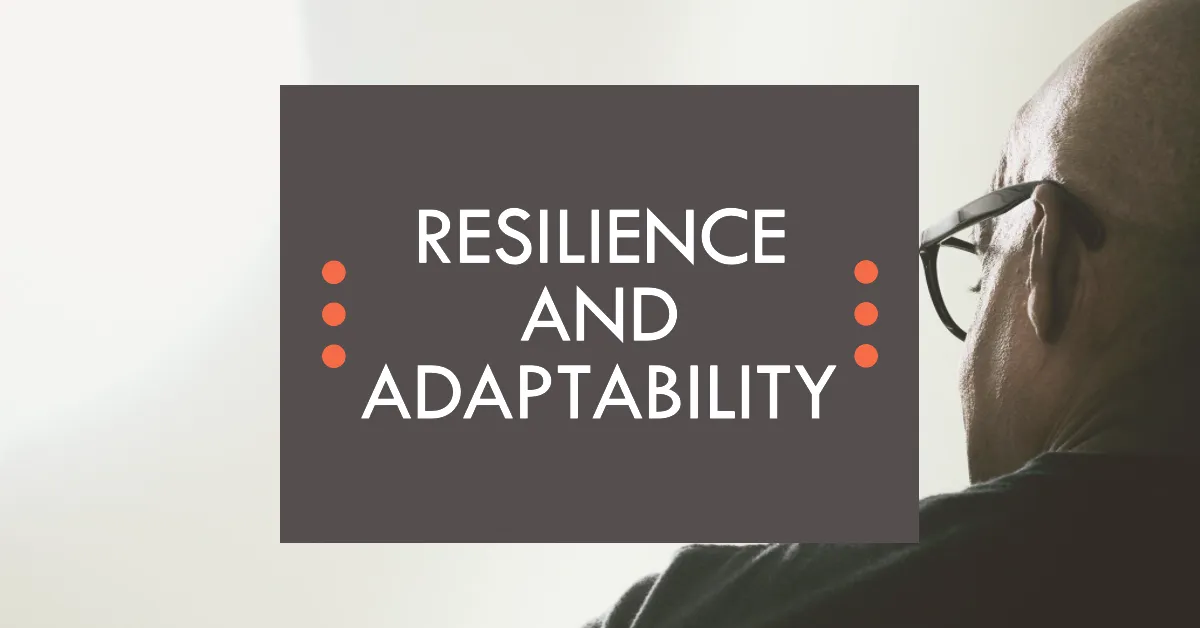Are you tired of feeling stuck in your leadership role? Do you ever find yourself wondering why some leaders seem to effortlessly succeed while others struggle to keep up? The answer may lie in their mindset.
Your mindset, or the attitudes and beliefs that shape your thinking, can have a profound impact on your leadership success. In fact, it can be the difference between becoming a great leader who inspires change and growth or remaining stagnant in your career. But don’t worry – with the help of mindset coaching, you can overcome limiting beliefs and develop a growth-oriented attitude that will take your leadership skills to new heights.
Table of Contents
- 1 Key Takeaways
- 2 Understanding the Importance of Mindset for Leadership Success
- 3 Defining Growth Mindset and Its Benefits
- 4 Identifying Limiting Beliefs and Overcoming Negative Self-Talk
- 5 Developing Resilience and Adaptability
- 6 Fostering a Culture of Growth and Learning
- 7 Implementing Mindset Coaching for Your Leadership Team
Key Takeaways
- Mindset coaching can help leaders overcome limiting beliefs and develop a growth-oriented attitude.
- Cultivating a growth mindset is essential for becoming a successful leader.
- Being adaptable in leadership style can help leaders navigate through any challenges that come their way.
- Mindset coaching helps leaders become more resilient in the face of obstacles and setbacks.
Understanding the Importance of Mindset for Leadership Success
You can’t just go through the motions and expect to be a successful leader; you need to have the right mindset, because as they say, ‘mindset is everything’. It’s not enough to simply have the technical skills required for your job. Your mindset affects how you approach challenges, how you interact with others, and ultimately, your success as a leader.
Leaders who have a growth mindset are more likely to succeed than those with a fixed mindset. A growth mindset means that you believe in your ability to learn and grow from mistakes and failures. This type of thinking allows leaders to take risks and experiment without fear of failure. When leaders adopt this kind of mentality, they’re able to inspire their teams and foster an environment of creativity and innovation.
On the other hand, leaders with a fixed mindset tend to be more rigid in their thinking. They’re less likely to take risks or try new things because they’re afraid of failure or looking incompetent. This type of thinking can stifle creativity and innovation within a team, resulting in missed opportunities for growth.
If you want to become a successful leader, it’s essential that you cultivate a growth mindset by adopting an attitude of continuous learning. You should also encourage your team members to adopt this way of thinking by providing them with opportunities for development and recognizing their efforts toward improvement. With the right mindset in place, both you and your team can achieve great things together!
Defining Growth Mindset and Its Benefits
Imagine how much more fulfilling your career could be if you approached challenges as opportunities to learn and grow, rather than obstacles to overcome. This is the essence of a growth mindset – the belief that abilities and intelligence can be developed through hard work, dedication, and perseverance. As a leader, cultivating a growth mindset not only benefits yourself but also those around you.
Here are four reasons why:
- Encourages innovation: When you have a growth mindset, you’re open to new ideas and possibilities. You’re not afraid of failure because you see it as an opportunity to learn and try again. This helps foster creativity and encourages experimentation which can lead to innovative solutions.
- Promotes resilience: In today’s fast-paced business world, change is inevitable. Having a growth mindset means that you’re adaptable and flexible in the face of challenges or setbacks. You don’t give up easily because you believe that with effort and time, you can overcome any obstacle.
- Develops stronger relationships: Leaders with a growth mindset focus on developing their own skills as well as those of their team members. They recognize that everyone has room for improvement and encourage others to embrace learning opportunities too. By fostering an environment where everyone is encouraged to grow together, leaders build stronger relationships with their team members.
- Enhances personal satisfaction: Finally, having a growth mindset leads to greater personal satisfaction in your career because it allows you to focus on progress rather than perfection. Instead of beating yourself up over mistakes or shortcomings, you celebrate incremental improvements along the way which boosts morale and motivation.
Adopting a growth mindset can bring numerous benefits both personally and professionally for leaders who are willing to put in the effort required for self-improvement and development alongside their teams’ progress toward shared goals.#
Identifying Limiting Beliefs and Overcoming Negative Self-Talk

As a leader, you may have certain limiting beliefs that hinder your growth and progress. These beliefs can be deeply ingrained and difficult to overcome, but identifying them is the first step toward breaking free from their grip. Additionally, negative self-talk can further reinforce these limiting beliefs and hold you back from reaching your full potential. However, there are techniques you can learn to overcome this inner dialogue and replace it with more positive and empowering thoughts.
Common Limiting Beliefs for Leaders
Identifying common limiting beliefs that hold leaders back is essential for achieving growth and success. Many leaders believe they need to have all the answers and be perfect in every decision they make. This belief can lead to fear of failure, which ultimately hinders their ability to take risks and innovate. It’s important for leaders to realize that it’s okay not to know everything and make mistakes along the way.
Another common limiting belief is the idea that being vulnerable or showing emotions is a sign of weakness. Leaders who hold onto this belief may struggle with building strong relationships with their team members, as they may feel the need to always maintain a certain level of composure. However, vulnerability and emotional intelligence are actually key components in building trust and fostering effective communication within a team. By recognizing these limiting beliefs and working to overcome them, leaders can unlock their full potential and create a more positive work environment for themselves and their teams.
Techniques for Overcoming Negative Self-Talk
To combat negative self-talk, try replacing critical thoughts with positive affirmations and practicing self-compassion. When you find yourself thinking negative thoughts, replace them with positive ones. For example, if you catch yourself thinking ‘I can’t do this’, replace it with ‘I am capable of achieving my goals’. This simple switch in mindset can make a huge difference in how you perceive yourself and your abilities.
Another effective technique is to practice self-compassion. Instead of beating yourself up for mistakes or failures, treat yourself with kindness and understanding. Recognize that everyone makes mistakes and that failure is a natural part of the learning process. By being gentle with yourself, you’ll be better equipped to bounce back from setbacks and achieve your goals in the long run. Remember: the way you talk to yourself matters, so choose your words wisely!
Developing Resilience and Adaptability

Hey there, let’s talk about developing resilience and adaptability in your leadership role. Building resilience is essential because it allows you to overcome challenges and bounce back from setbacks. It’s also important to be adaptable because as a leader, you’ll encounter unexpected changes and need to adjust your strategies accordingly. By focusing on these two key points, you can become a more effective leader and inspire those around you to do the same.
Building Resilience to Overcome Challenges
Resilience is key to bouncing back from challenges and achieving success, so leaders must learn how to build it up. Building resilience means developing the ability to adapt and recover quickly from setbacks. It also means learning how to stay focused on your goals even when things get tough.
To build resilience, start by recognizing that challenges are a natural part of life. Instead of seeing them as obstacles, view them as opportunities for growth and development. Focus on what you can control, rather than worrying about what you cannot change. Practice self-care by taking care of your physical health through exercise, sleep, and healthy eating habits. Finally, surround yourself with positive people who will support and encourage you along the way.
Remember that building resilience takes time and effort, but it is worth it in the end. By developing this skill set, you will be better equipped to handle any challenges that come your way and achieve the success you desire. So keep pushing forward with determination and an unwavering belief in yourself – your future self will thank you for it!
The Importance of Adaptability in Leadership
You may not always be able to control the circumstances, but being adaptable in your leadership style can help you navigate through any challenges that come your way. As a leader, it’s important to recognize that change is inevitable, and being able to adjust your approach accordingly can mean the difference between success and failure.
To cultivate adaptability as a leader, consider these three tips: First, take time to assess the situation before reacting. This can help you avoid knee-jerk responses and make more informed decisions. Second, stay open-minded and flexible in your thinking. Be willing to consider alternative perspectives and ideas that challenge your own assumptions. And finally, don’t be afraid to experiment with different approaches or strategies until you find what works best for you and your team. By embracing adaptability, you can lead with confidence through any difficulties that arise.
Fostering a Culture of Growth and Learning
If you’re looking to create a workplace that values growth and learning, start by encouraging employees to take risks and learn from their mistakes. This means creating an environment where failure is not only accepted but also celebrated as a necessary step toward progress. As a leader, it’s your responsibility to foster a culture of growth by promoting curiosity, experimentation, and continuous improvement.
To encourage growth and learning in your team members, provide them with opportunities for professional development through training programs, mentorship initiatives, or even job shadowing. Encourage them to attend conferences or industry events where they can network with peers and learn about new technologies or trends in their field. By investing in the growth of your employees, you’re not only helping them achieve their career goals but also ensuring that your organization stays competitive in today’s fast-paced business environment.
Another way to foster a culture of growth is by providing regular feedback on performance. This helps employees understand what they’re doing well and where there may be room for improvement. Feedback should be constructive, specific, and delivered in a timely manner so that employees have time to make changes before it becomes too late. When done effectively, feedback can help individuals identify blind spots they may not have been aware of before.
Lead by example when it comes to embracing new challenges and learning opportunities yourself. Share stories about how you overcame obstacles or learned from past failures. Be transparent about your own areas of weakness and demonstrate how you are working on improving them. When leaders model the behavior they want to see within their teams, it creates an atmosphere where everyone feels empowered to take risks and embrace new opportunities for growth and learning.
Implementing Mindset Coaching for Your Leadership Team
By incorporating a new type of training, your leadership team can unlock their full potential and drive success for your organization. Mindset coaching is an effective way to help your leaders become more self-aware and develop the skills they need to lead with clarity and confidence. The first step in implementing mindset coaching is to identify the areas where your team needs improvement. This could be anything from communication skills to time management or conflict resolution.
Once you’ve identified these areas, it’s important to find a coach who specializes in mindset training for leaders. Look for someone who has experience working with top-level executives and understands the unique challenges they face. A good coach will work closely with each member of your leadership team, helping them identify their strengths and weaknesses, set goals, and develop strategies for achieving them.
One of the key benefits of mindset coaching is that it helps leaders become more resilient in the face of obstacles and setbacks. By teaching them how to reframe negative thoughts and focus on solutions rather than problems, coaches can help leaders stay motivated even when things get tough. This can be especially valuable during times of change or uncertainty when employees may be looking to their leaders for guidance.
It’s important to remember that mindset coaching isn’t a one-time event – it should be an ongoing process that evolves over time as your team grows and develops. Encourage your leaders to continue working with their coaches even after they’ve achieved their initial goals so that they can continue improving themselves and driving success for your organization. With the right mindset coaching program in place, you’ll have a team of confident, capable leaders who are ready to take on any challenge that comes their way.




